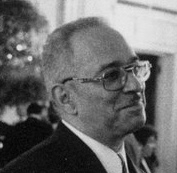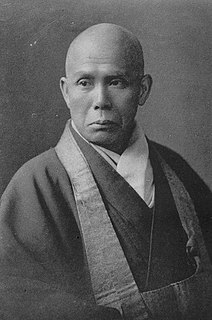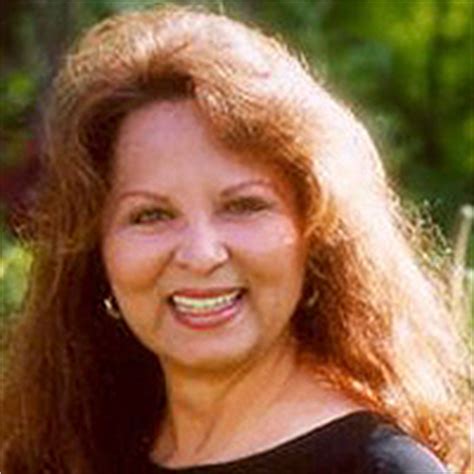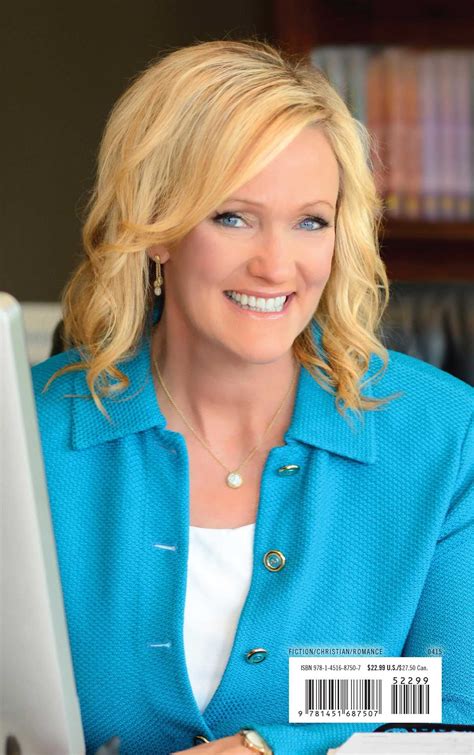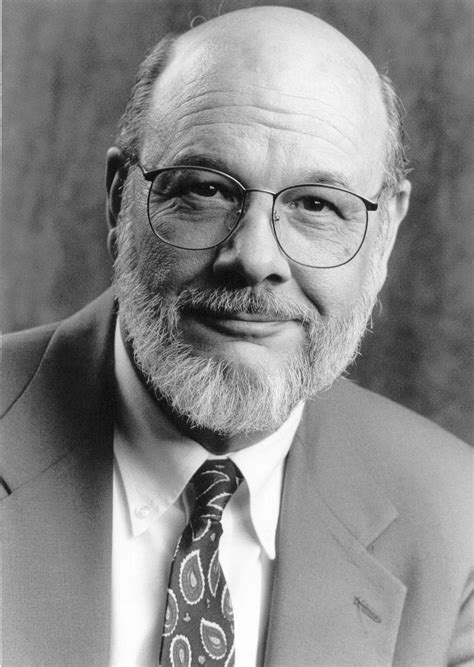A Quote by George M. Church
Science has very definite faith components, and most religions don't stick to faith. They venture out into making predictions about our physical world. They don't just say there's something that is completely unconnected to us. They say actually it affects a lot. And when they do that, they merge.
Related Quotes
Let people say whatever they like, stick to your own convictions, and rest assured, the world will be at your feet. They say, "Have faith in this fellow or that fellow", but I say, "Have faith in yourself first", that's the way. Have faith in yourself-all power is in you-be conscious and bring it out. Say, "I can do everything."
Faith should be pulled into the public arena when it affects how we live. If it doesn't, it does no earthly good. What does my faith say about the fact that a girl can't be a nuclear physicist because she's black and from the inner city? My faith says, no, that's not what God intended. It pulls it back into the public arena the idea that there's got to be something fair for all of us.
Faith is the framework for living. It gives us the spirit and heart that affects everything we do. If gives us hope each day. Faith gives us purpose to right wrongs, to preserve our families, and to teach our children values. Faith gives us conscience to keep us honest, even when nobody is looking. And, faith can change lives; I know first hand, because faith changed mine.
Think about how many of us have wondered why we don't fit, why our faith doesn't stabilize us, why we seem so out of sync with most of the world. Genuine faith is the isolating force in our lives that creates tension wherever we go. To put it another way, faith is the unbalancing force in our lives that is the fruit of God's disturbing presence.
Freeman denied the claim that he was a “man of God”, saying that “the question of faith is whatever you actually believe is. We take a lot of what we're talking about in science on faith; we posit a theory, and until it's dis-proven we have faith that it's true. If the mathematics work out, then it's true, until it's proven to be untrue.
It often seems easier not to move on; even the muck and mire in which we're stuck seems less fearful and less challenging than the unknown path ahead. Some people use faith as a reason to remain stuck. They often say, "I have faith, so I'm waiting." But faith is not complacent; faith is action. You don't have faith and wait. When you have faith, you move. Complacency actually shows lack of faith. When it's time to move in a new direction in order to progress, the right people will come to us.
We're not in the physical world. The physical world is in us. We create the physical world when we perceive it, when we observe it. And also we create this experience in our imagination. And when I say "we," I don't mean the physical body or the brain, but a deeper domain of consciousness which conceives, governs, constructs and actually becomes everything that we call physical reality.
We don't always possess faith in the sense of having a clear embodiment of something to hang on to. The relationship between the intellect and faith is a very curious one. Sometimes the intellect can point us to faith, sometimes the intellect can stand in the way of faith. Sometimes, as St John of the Cross points out, we have to darken or blind the intellect in order to have faith.
I do believe that nice religious people make the world safe for extremists by teaching us [...] that faith is a virtue, teaching us that there's something good about holding beliefs without any substantiating evidence. Once you buy into that, [...] then the door is opened to extremists who defend their extremism by saying, 'Oh well, it's my faith, you can't touch it, you can't criticise my faith, I don't even need to defend it because faith is faith.'
I believe faith is a human universal. We are endowed at birth with nascent capacities for faith. How these capacities are activated and grow depends to a large extent on how we are welcomed into the world and what kinds of environments we grow in. Faith is interactive and social; it requires community, language, ritual and nurture. Faith is also shaped by initiatives from beyond us and other people, initiatives of spirit or grace. How these latter initiatives are recognized and imaged, or unperceived and ignored, powerfully affects the shape of faith in our lives.


